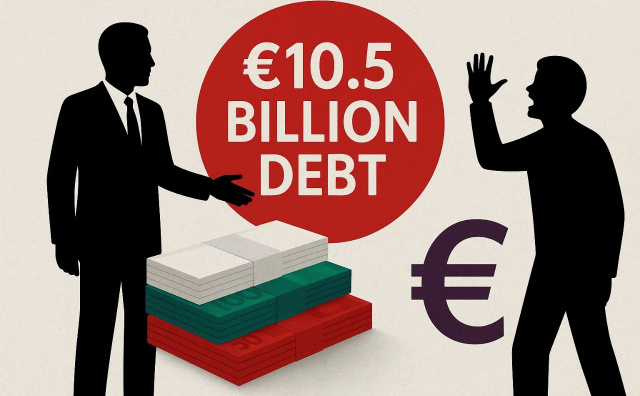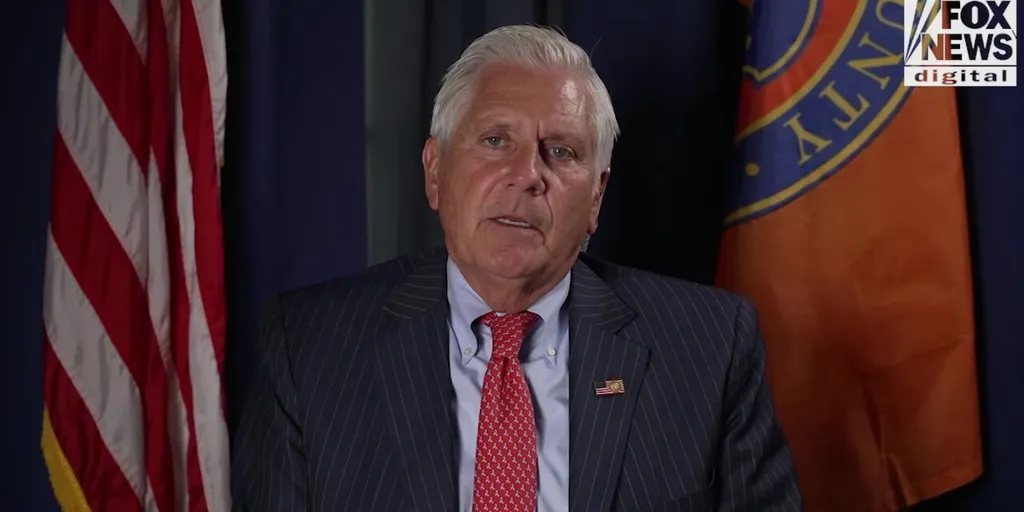Copyright novinite

Bulgaria unveils historic 51.4 billion euros budget amid concerns over rising debt and taxes Bulgaria has published its draft state budget for 2026, marking a historic milestone as the country's first budget calculated entirely in euros before it enters the eurozone on January 1st, 2026. However, the landmark document has been met with sharp criticism from trade unions, employers, and financial experts who warn of unsustainable fiscal policies and insufficient reforms. Record Spending and Mounting Debt The Ministry of Finance projects total revenues of 51.4 billion euros and expenditures of 55.1 billion euros, creating a deficit of 3% of GDP - approximately 3.6 billion euros. The government is authorized to take on up to 10.5 billion euros in new debt, bringing the total state debt to 37.6 billion euros by the end of 2026, or 31.3% of GDP. While this remains below eurozone averages, the scale of new borrowing has raised eyebrows. Of the planned debt, 3.26 billion euros is earmarked for the European SAFE instrument to strengthen the defense industry, reflecting Bulgaria's significant military modernization efforts. The budget forecasts economic growth will slow to 2.7% in 2026, with average annual inflation holding steady at 3.5%. Tax Increases Spark Business Backlash Several tax changes have provoked fierce opposition from the business community. The withholding tax on dividends and liquidation shares will double from 5% to 10%, while gambling operators will see their variable tax rate increase from 20% to 25%. The excise calendar for tobacco products continues its upward trajectory, with further increases planned for coming years. Most controversially, the social security contribution to the Pension Fund will increase by 2 percentage points from January 1, 2026, with another 1 percentage point hike scheduled for 2028. The minimum insurance income for self-insured persons will rise to 620.20 euros, matching the new minimum wage. The Association of Bulgarian Employers' Organizations condemned these measures, warning they would trigger "a chain of irreversible processes" including investment outflows, increased shadow economy activity, deteriorating competitiveness, higher inflation, and slower economic growth. Business groups also criticized the government for releasing the budget at the last minute, calling it a "deliberate circumvention of public dialogue" that undermines social partnership and proper consultation. "Putting Out Fire with Gasoline" Financial analyst Levon Hampartzumyan delivered a scathing assessment, comparing the budget to "putting out a fire with gasoline" due to its pro-inflationary nature. He argued that the government failed to articulate clear goals or explain the rationale behind key decisions. "We are patching things up. If we do this for several consecutive years, we will hit the wall at 200 km/h," Hampartzumyan warned, citing the financial crises that befell Cyprus, Greece, and Romania. "At some point this 'coupon' runs out and the bill comes and this bill must be paid." He particularly criticized the absence of mechanisms to measure the effectiveness of public spending, suggesting the government is simply increasing expenditures without accountability. Social Security Controversy Trade union leader Kremena Atanasova from the "Podkrepa" Labour Confederation called the budget "disgraceful and shameful," warning it would deepen problems in public administration. She focused on the treatment of civil servants, who currently do not pay their own social security contributions - a practice dating back to the year 2000. This creates a two-tier system where civil servants and employees under regular employment contracts work side-by-side but have vastly different social security incomes and benefits. Civil servants receive lower benefits for sick leave, maternity, unemployment, and pensions. Atanasova emphasized that civil servants want to pay their own contributions, but only if their gross salaries are increased accordingly to maintain the same net income. She also highlighted severe staffing problems: "Nobody wants to work on a 1,500 leva salary (750 euros), work with citizens, be responsible for dozens of documents and have expertise on them." The proposed 5% increase in personnel costs for the budget sector - which includes not just administrators but also judges, doctors, teachers, police, and military personnel - was deemed "extremely humiliating and unacceptable" for the second consecutive year. Where the Money Goes Despite the criticism, the budget does allocate significant resources to priority areas: Defense receives approximately 2.7 billion euros, with nearly 1 billion euros for capital investments, including F-16 Block 70 aircraft (phase II), modular patrol ships, anti-tank systems, 3D radars, and coastal defense systems. Infrastructure dominates spending, with major highway projects continuing on the Struma and Hemus motorways, the Ruse-Veliko Tarnovo route, and various first-class roads. The water sector includes completing the Luda Yana Dam and starting the Cherni Osam Dam. Railway modernization covers multiple corridors and junctions. Municipalities will receive over 5.1 billion euros in transfers, including a separate Investment Program worth up to 920.3 million euros for local infrastructure - water and sewage systems, streets, social facilities, and urban improvements. Healthcare funding includes completing HEMS (helicopter emergency medical service) infrastructure and preparing a proton radiation therapy center in Sofia. Social support sees the child-raising benefit increase to 460.17 euros for children up to 2 years old, with payments for unused maternity leave rising from 50% to 75%. EU Commitments and Fiscal Rules The budget maintains compliance with EU fiscal rules, though expenditures reach 45.8% of GDP - above the recommended 40% threshold. The minimum fiscal reserve is set at 2.4 billion euros. Contributions to the EU budget will total approximately 1.2 billion euros. The Ministry of Finance insists the framework preserves fiscal sustainability while ensuring necessary spending policies. However, critics argue the lack of structural reforms and the reliance on tax increases rather than spending efficiency measures point to an unsustainable trajectory. As Bulgaria navigates its first year with the euro, the 2026 budget has become a flashpoint for deeper questions about fiscal responsibility, economic competitiveness, and the balance between public investment and taxpayer burden. With the document now submitted for parliamentary approval, intense debates lie ahead over whether this represents prudent planning or dangerous short-termism. The draft budget was published late on the evening of November 3rd, missing the statutory October 31 submission date and drawing criticism for insufficient time for public consultation before parliamentary consideration.



